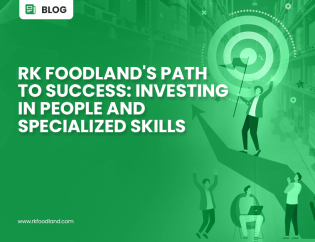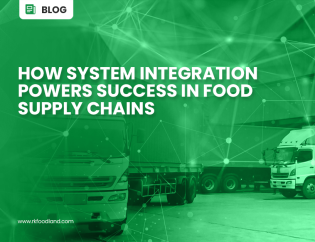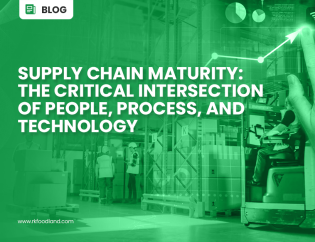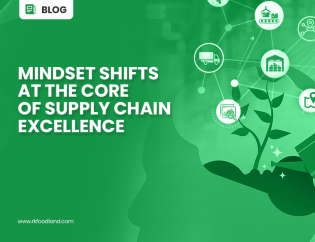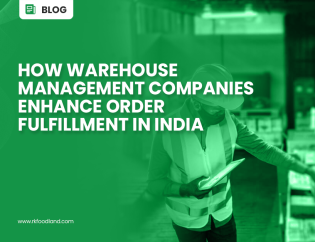
[Avg. Read Time < 5 mins]
Once struggling to stay competitive, a small food service business sought advice from a consultant and learned the power of resource optimization. The consultant analysed the business’s menu and operations, identifying opportunities to reduce costs and improve staff efficiency. Embracing the recommendations, the business provided greater value to customers and maximized its resource utilization, resulting in higher profits and greater customer loyalty. Today, this food service business is a leading QSR brand in the world. The story is a reminder that in the cutthroat food industry, lasting success can only be achieved by prioritizing value maximization over cost reduction and adopting it as a fundamental mindset. This includes aligning with consumer preferences, adopting sustainable practices, and fostering strong partnerships throughout the supply chain. By focusing on these areas, businesses can not only remain competitive but also gain a reputation as a leader in the industry. In this blog, we will explore how food businesses can make “Value Maximization” happen.
Key to Value Maximization – balancing Service, Assurance, and Cost effectively
According to a recent survey conducted by Gartner, 60% of Supply Chain Leaders in the food service and FMCG industry have recognized the significance of prioritizing customer experience to achieve maximum value. This involves comprehending what customers value the most and delivering it effectively, resulting in clearer differentiation, increased pricing power, and bigger market share. To achieve this, businesses must balance three important pillars – Service, Assurance, and Cost.
- Service refers to the ability to meet customer expectations regarding food quality, speed of delivery, and product availability. By providing excellent service, businesses can increase customer satisfaction, boost profitability, and gain a competitive edge. According to IBM, businesses that elevate customer experience to the status of a formal business priority reported 3x higher revenue than those that did not.
- Assurance involves mitigating risk by establishing redundant processes, escalation procedures, and integrated data management systems that provide end-to-end visibility, predictability, and transparency. By delivering assurance, businesses can improve decision-making capabilities and minimize negative outcomes such as product recalls or service failures.
- Cost optimization is also essential for value maximization. By adopting a Total System Cost approach, businesses can reduce costs across the entire supply chain, achieve operational efficiencies, and maximize value for the customer while minimizing costs for the business. 79% of businesses with high-performing supply chains exceed the industry average for revenue growth.
To balance these three pillars effectively, businesses must have thorough processes to track lead indicators like avg. time-to-market, order-to-cash cycle time, on-time in-full deliveries, order performance, demand planning & inventory accuracy, and a few others. However, achieving this balance requires significant internal efforts, SCM capabilities, and may also need help of external SCM expertise.
Building strong partnerships – shared values can enhance your overall SCM performance
In today’s highly competitive and demand-driven markets, having a strong supply chain is crucial for the success of any business. As supply chains have become the backbone of business operations, it is important to have the best SCM capabilities to gain long-term growth. Building strong partnerships is the ultimate competitive edge for demand-driven growth. According to G2, the majority (94%) of businesses rely on supply chain partnerships to manage the surges that occur during their peak seasons. When looking for a supply chain partner, businesses should seek someone who shares their commitment to sustainability, ethical practices, and quality. By developing a clear set of values and expectations for their suppliers, businesses can ensure alignment and establish a strong foundation for a successful partnership.
Unfortunately, too often, earnings and budgetary pressures trap business leaders into trading long-term customer value for short-term results. It is important for businesses to invest in and prioritize long-term partnerships over short-term cost savings. By doing so, businesses can build trust, foster innovation, and improve overall supply chain performance. By focusing on building strong partnerships with shared values, businesses can establish a solid foundation for long-term success and move up the maturity curve towards becoming a more agile, efficient, and customer-focused organization with strategic approach.
Moving up the maturity curve – from transactional towards strategic approach
Shifting towards a strategic approach from a transactional one and progressing up the maturity curve has the potential to significantly transform businesses. To make this transition at an accelerated rate, it is crucial to partner with the right expert who can offer the necessary expertise and support. This strategic approach enables businesses to make informed decisions by providing end-to-end visibility across the system. It fosters innovation and agility by leveraging technology, data, and transparency, thereby allowing businesses to quickly adapt to changing market conditions. By moving up the maturity curve, businesses can maximize their total value by aligning supply chain processes with business objectives. This, in turn, creates a competitive advantage in the marketplace, strengthens brand reputation, increases customer loyalty, and drives profitability. By utilizing a strategic approach, businesses can identify and capitalize on opportunities that might not have been visible earlier and optimize their operations for better results. Overall, moving up the maturity curve from a transactional approach to a strategic approach can have a significant impact on a business’s success. It enables businesses to make more informed decisions, foster innovation, and drive value. Partnering with the right provider and leveraging technology, data, and transparency can accelerate this transition and help businesses achieve their objectives faster.
In today’s competitive business landscape, maximizing value and optimizing resources are essential for sustainable growth. Adopting a strategic approach to supply chain management can help businesses achieve this objective. By balancing service, assurance, and cost, businesses can differentiate themselves in the market, improve customer loyalty, and drive profitability. Partnering with an external SCM expert can be a game-changer for businesses, helping them gain a competitive edge and achieve cost competitiveness. Businesses that prioritize supply chain partnerships and external expertise gain a significant advantage over their competitors, enabling them to succeed in today’s demanding market.
For over 35 years, RK Foodland has been a trusted partner enabling brands to realise their growth aspirations. Connect with our experts to learn how we can help you maximize your value and take your food business to the next level!
Related Content | Foodland’s Resources
Supply Chain Collaboration – The New Way to Drive Value!
Agriculture supply-chain optimization and value creation
Total System Cost: The Key to Long-Term Business Sustainability


